From Joseph Smith to Mitt Romney, Latter-day Saints have had a long history with presidential races. But did you know there have been eight Latter-day Saints who have made a bid to be the leader of their country? Read on to learn more about these fascinating Church members!
1. Joseph Smith (1844, Independent)
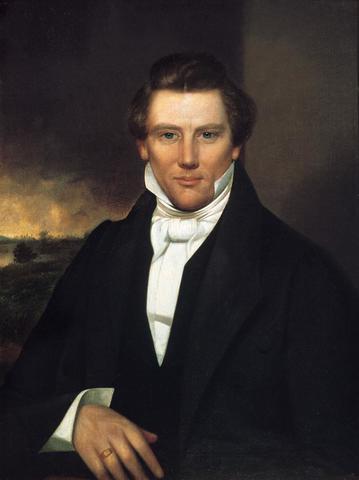
In January of 1844, after concluding that none of the major presidential candidates would protect the Saints or redress their grievances, Joseph Smith held a meeting in Nauvoo with the Quorum of the Twelve Apostles and others. The brethren unanimously decided that Joseph Smith would run for president on an independent platform. But he entered the presidential race somewhat reluctantly. He wrote:
“I would not have suffered my name to have been used by my friends on anywise as President of the United States, or candidate for that office, if I and my friends could have had the privilege of enjoying our religious and civil rights as American citizens, even those rights which the Constitution guarantees unto all her citizens alike. But this as a people we have been denied from the beginning. Persecution has rolled upon our heads from time to time, from portions of the United States, like peals of thunder, because of our religion; and no portion of the Government as yet has stepped forward for our relief. And in view of these things, I feel it to be my right and privilege to obtain what influence and power I can, lawfully, in the United States, for the protection of injured innocence” (History of the Church, 6:210–11).
The Prophet’s campaign started in Nauvoo in February of 1844, and soon news spread to neighboring states that the Latter-day Saint prophet was running for president. At the time, he was serving as mayor of Nauvoo—a city that was larger and growing faster than most U.S. cities, including nearby Chicago. He was also serving as lieutenant-general of the Nauvoo Legion, which had more than 3,000 men and was second in size only to the U.S. Army.
His bid for president included a pamphlet outlining his views on government and policy. He proposed several progressive ideas on prison reform, the annexation of Texas and Oregon, and even a plan on how to end slavery by 1850. His pamphlet stated:
“I ever feel a double anxiety for the happiness of all men, both in time and in eternity, where the Declaration of Independence which states that we hold these truths to be self-evident, that all men are created equal; that they are endowed by their Creator with certain unalienable rights; but at the same time some two or three million of our people are held as slaves for life, because the spirit in them is covered with a darker skin than ours. Government officers, who are nothing more nor less than the servants of the people, ought to be directed to ameliorate the condition of all, black or white, bond or free; for ‘God hath made of one blood all nations of men for to dwell on the face of the earth.’
“‘We, the people of the United States, in order to form a more perfect union, establish justice . . . and secure the blessings of liberty to ourselves and our posterity’ meant just what it said without reference to color or condition. Petition, also, ye goodly inhabitants of the slave states, your legislators to abolish slavery by the year 1850, or now, and save the abolitionist from reproach and ruin, infamy and shame. Pray Congress to pay every man a reasonable price for his slaves out of the surplus revenue arising from the sale of public lands, and from the deduction of pay from the members of Congress” (History of the Church, 6:189, 197).
The Prophet’s presidential campaign was cut tragically short on June 27, 1844, when he was killed at Carthage Jail just four months after his campaign began.
2. George W. Romney (1968, Republican)
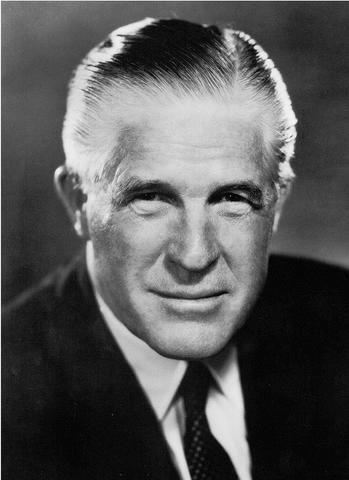
George W. Romney, father of Mitt Romney, was a successful businessman who served as chairman and president of American Motors Corporation from 1954 to 1962. He went on to serve as a popular and respected governor of Michigan from 1963 to 1969. Romney announced his candidacy for president in 1967, and for a time he was the GOP favorite, expected to take the nomination for the Republican party.
Unfortunately, Romney’s lead slipped in the polls, due in part to his changing stance on the Vietnam War. Two weeks before the March 12 primary, an internal poll showed Romney losing to Richard Nixon by a six-to-one margin in New Hampshire. Seeing his cause was hopeless, Romney announced his withdrawal as a presidential candidate on February 28, 1968. Romney wrote Mitt, who was serving a mission in France, “Your mother and I are not personally distressed. As a matter of fact, we are relieved. . . . I aspired, and though I achieved not, I am satisfied.”
Richard Nixon went on to win the Republican nomination and the presidential election. After Nixon took office, he appointed Romney to be Secretary of Housing and Urban Development.
3. Morris "Mo" King Udall (1976, Democrat)
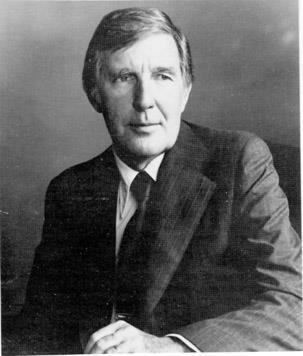
Morris “Mo” Udall came from an early pioneer family who settled in Mesa, Arizona. He had served in Congress for almost 20 years when he made a bid for the White House on the Democratic ticket in 1976.
Udall ran as a liberal alternative to Jimmy Carter, a former governor of Georgia. Udall and Carter ran neck-to-neck in many of the earlier caucuses and primaries, but Carter eventually gained the momentum he needed to receive the presidential nomination at the Democratic National Convention.
Udall resumed his role as congressman, serving in the U.S. House of Representatives from 1961 to 1991. In 1996, Udall was awarded the Presidential Medal of Freedom by President Bill Clinton, who said of the congressman, “Morris Udall represents everything a lawmaker should be. His work is a gift to all Americans.”
Udall suffered from Parkinson’s disease and died in 1998. Federal funds for Parkinson's research are now designated through the Morris K. Udall Parkinson’s Disease Research Act of 1997.
BONUS FACT: Udall was 6 feet 5 inches tall and played professional basketball for the Denver Nuggets from 1948 to 1949.
4. Orrin Hatch (2000, Republican)

Orrin Grant Hatch was the longest serving Republican senator in US history, and the longest-serving senator in Utah history, representing the state of Utah for 42 years. In 2000, Senator Hatch entered the race to be the Republican presidential nominee. He ran on a traditional Republican platform of tax cuts, stronger military, and opposition to abortion.
Despite his decades of experience as a senator, Hatch was unable to gain support as a presidential candidate. After withdrawing from the primaries, he threw his support behind Texas Governor George W. Bush.
Senator Hatch became president pro tempore—the second-highest-ranking official of the United States Senate—in 2015. As president pro tempore, Senator Hatch was third in the line of succession to the presidency, after the vice president and speaker of the House of Representatives. In 2018, Senator Hatch announced his retirement and that he would not seek re-election.
BONUS FACT: Senator Hatch played the piano, violin, and organ and wrote several songs. For example, he and Janice Kapp Perry co-wrote the song “Heal Our Land,” which was performed at George W. Bush’s January 2005 inauguration.
► You may also like: Sen. Orrin Hatch memorial service: Pres. Oaks, Sen. Mitch McConnell celebrate faith, camaraderie
5. Mitt Romney (2008 and 2012, Republican)
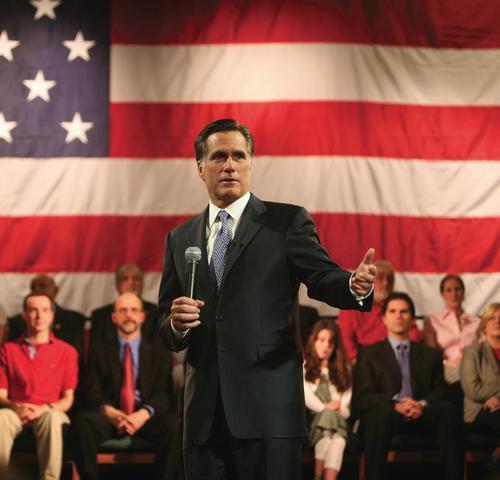
Willard Mitt Romney, son of Michigan Governor George W. Romney, graduated with honors from Brigham Young University in 1971. Four years later, he graduated from a joint JD/MBA program from Harvard Law School and Harvard Business School.
After finishing college, Mitt went to work for The Boston Consulting Group, where he had worked as an intern. From 1978 to 1984, he served as vice president of Bain & Company, Inc., another local consulting firm. He eventually left to co-found Bain Capital—a private equity investment firm.
Romney left his lucrative job in 1998 when he was asked to assume leadership as president and CEO of the troubled 2002 Salt Lake City Olympic Games Organizing Committee, which was riddled with corruption and had fallen $379 million short of its revenue benchmarks. He immediately worked to raise money and cut costs. During his Olympic leadership, Romney not only filled the $379 million gap, but he generated nearly a $100 million surplus. He would also personally contribute one million dollars to the Olympics and donate his $825,000 salary to charity.
Later in 2002, Romney made waves in the heavily Democratic state of Massachusetts when he was elected the 70th governor of the state. He served one term and did not seek re-election. By this time, his sites were set on a loftier goal: the White House.
When Romney announced his presidential candidacy in 2007, he was immediately bombarded with questions about the Church, and it became one of his biggest obstacles on his path to the White House. In response to relentless inquiries, Romney eventually chose to address concerns about how the Church would influence his role as president of the United States.
In what could be described as the most defining moment of his first presidential run, Romney delivered a powerful speech on December 6, 2007, entitled “Faith in America.” In the speech, he made reference to John F. Kennedy's famous 1960 speech in which Kennedy had to address concerns about his religion. And while assuring Americans that he did not confuse religion and politics as governor of Massachusetts and would not do so as president, he made it clear that he would not distance himself from his religious beliefs. He said, “I believe in my Mormon faith and I endeavor to live by it. My faith is the faith of my fathers—I will be true to them and to my beliefs. Some believe that such a confession of my faith will sink my candidacy. If they are right, so be it.”
Although he stated his belief in Jesus Christ as the Son of God and Savior of the world, he did not elaborate on Latter-day Saint doctrine. He stated, “There are some who would have a presidential candidate describe and explain his church's distinctive doctrines. To do so would enable the very religious test the founders prohibited in the constitution. No candidate should become the spokesman for his faith. For if he becomes president, he will need the prayers of the people of all faiths.”
Romney lost the Republican nomination to Senator John McCain of Arizona, who would lose the 2008 presidential election to Barack Obama.
No other presidential candidate in the 2008 presidential race was asked to defend or clarify his religious beliefs to the same extent as Romney, and when he made his second bid for the presidency, this time winning the Republican nomination in 2012, he continued to defend his statement that he would not become a spokesman for the Church. When asked by CNN in June of that year, “What is the Mormon position on homosexuality being a sin?” Romney responded, “I’m not a spokesman for my church. And one thing I’m not going to do in running for president is become a spokesman for my church or apply a religious test that is simply forbidden by the constitution.” He continued, “If you want to learn about my church, talk to my church.”
Romney lost the 2012 presidential election to President Barack Obama. Romney received 47 percent of the popular vote and 206 electoral votes to Obama’s 51 percent of the popular vote and 332 electoral votes.
► You may also like: Watch: What Sen. Mitt Romney told Fox News about temples and Latter-day Saint beliefs
6. Jon Huntsman Jr. (2012, Republican)
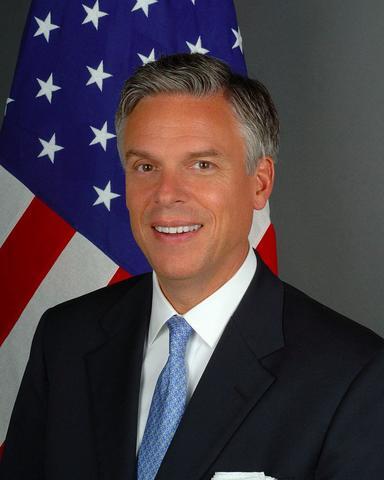
Jon Meade Huntsman Jr. has served in the administrations of the last five U.S. presidents, getting his start as a White House staff assistant for President Ronald Reagan.
President George H.W. Bush appointed Huntsman as Deputy Assistant Secretary of Commerce and then as ambassador to Singapore. He has also served as CEO and chairman of his family-owned business, Huntsman Corporation, and the Huntsman Cancer Foundation.
In March 2003, Huntsman resigned his post as Deputy U.S. Trade Representative in the George W. Bush administration, and in November 2004, Huntsman was elected governor of Utah with 58 percent of the vote. In 2008, Huntsman won re-election with nearly 78 percent of the vote.
President Barack Obama nominated Huntsman to serve as the U.S. Ambassador to China on May 16, 2009, noting his experience in the region and proficiency in Mandarin Chinese, which he learned to speak while serving a mission in Taiwan. The Senate unanimously confirmed Huntsman, and he formally resigned as governor of Utah in August 2009.
His time as ambassador would be short, however. In January 2011, he submitted his formal resignation from his post as U.S. Ambassador to China effective April 30, 2011, to make a 2012 Republican presidential bid.
Huntsman formally entered the race for the Republican presidential nomination on June 21, 2011. Unlike fellow Latter-day Saint and presidential candidate Mitt Romney, who had faced scrutiny over his faith in his 2008 run, Huntsman was navigating new political waters as the national media, and some Latter-day Saints, placed his faith under a microscope.
“I believe in God. I’m a good Christian. I’m very proud of my Mormon heritage. I am Mormon,” Huntsman told Good Morning America in 2011. He then added, “Today, there are 13 million Mormons. It’s a very diverse and heterogeneous cross-section of people. And you’re going to find a lot of different attitudes and a lot of different opinions in that 13 million.”
Just eight days prior to Huntsman’s Good Morning America appearance, Time magazine reported Huntsman as saying his church membership was “tough to define.”
After focusing his energy and resources on the New Hampshire primary in which he finished third, Huntsman ended his campaign in January 2012 and endorsed Mitt Romney. Romney went on to win the Republican nomination but lost the election to President Barack Obama.
BONUS FACT: Jon Huntsman Jr. and Mitt Romney are related—third cousins once removed. Romney’s great-great-grandfather, Parley Pratt, is also Huntsman’s great-great-great-grandfather.
7. Yeah Samake (2013, Mali)
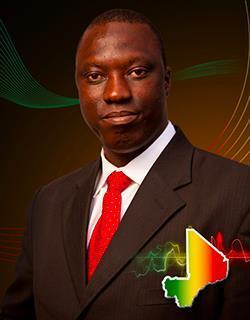
Yeah Samake was born and raised in Ouelessebougou, Mali, the eighth of 18 children. Though drought and poverty have ravaged the small West African country since its inception just over 50 years ago, Samake’s parents made every effort to ensure he and his siblings attended school. “My father knew the only way to break the cycle of poverty was through education,” he says.
After earning a degree in teaching English, Samake discovered there were no jobs for him. “I decided to go back home to my village, where I offered to teach English for free for three years,” he recalls. “It helped me to deepen my roots with my community, and I was able to afford the admiration of my city.”
Samake had met a couple of Latter-day Saint families, and after visiting them in the United States in 2000, he decided to join the Church. He went on to earn a master’s degree in public policy from BYU.
Samake says he always knew he wanted to be involved in politics. “For me, politics is the way of solving problems in the community, and I wanted to be in a leadership position to be able to solve problems.” Wanting to improve health care, education, and employment, Samake felt compelled to run for mayor of Ouelessebougou in 2009. “The country is 90 percent Muslim, so I made sure to tell people that I was [a Latter-day Saint]. But as I made it an issue, people were asking me, ‘Why are you talking about this? We trust you.’”
According to Samake, leaders at the local level were viewed with suspicion. “There was a complete distrust between the people and the mayor’s office, to the point that people would not pay their taxes. The tax collection rate had dropped below 10 percent, and that was concerning.” He continues, “I told the voters, ‘Together, we can change this city. How? You pay your taxes, and we will use all of the tax money efficiently. I will inform you of how much money was raised and how much was spent. None of it will go to me. If you trust me, you will see the result.’ They had never heard anything like this before,” he recalls. Samake was elected mayor with 86 percent of the vote.
Inspired by the organization of the Church, Samake created a kind of “elders quorum” to ensure complete financial transparency. Each of the 44 villages in Ouelessebougou was asked to select two trusted emissaries who would meet together to discuss the issues in their villages. “Most importantly, I share with them how much each village has paid in taxes and how much money was spent,” Samake explains. “It truly brought Ouelessebougou to a new level. The mayors of other cities saw what was going on and elected me to be vice president of the league of mayors, which is usually reserved for mayors serving their second or usually third term. I am the advocate between the mayors and the central government.”
When the president of Mali came to Ouelessebougou in January of 2012 for the dedication of a solar-powered field, Samake spoke boldly to him during a public speech. “I challenged him, explaining what the citizens expect of his leadership, which was unusual,” he recalls. “Some in the audience, including some very close advisors to the president, came to me and said, ‘We are looking for someone who can inspire this country. The president cannot run for reelection, and we think you should consider running. We will back you up. It became popular demand for me to run for president.’”
Mali's presidential election was scheduled for April 29, 2012. However, the election did not happen due to a military coup that overthrew the Malian government. Elections were rescheduled for July 28, 2013. In the first round of voting, Samake placed 16th out of 27 candidates.
Though he didn't win the presidency, Samake was appointed as the country’s ambassador to India by Mali’s new president, Ibrahim Boubacar Keita, in 2015.
Samake is also a candidate for the Mali’s 2024 presidential election.
► You may also like: Meet the Latter-day Saint running for president in Mali
8. Evan McMullin (2016, Independent)
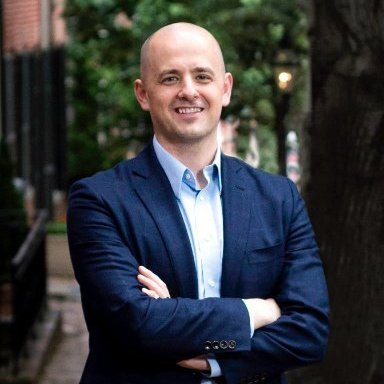
On August 8, 2016, Church member Evan McMullin stepped forward to announce his presidential candidacy, running as a last-minute conservative alternative to Republican nominee Donald Trump.
“In a year where Americans have lost faith in the candidates of both major parties, it’s time for a generation of new leadership to step up," McMullin said. "It’s never too late to do the right thing, and America deserves much better than either Donald Trump or Hillary Clinton can offer us. I humbly offer myself as a leader who can give millions of disaffected Americans a better choice for President.”
McMullin, age 40, earned a degree in international law and diplomacy from Brigham Young University. After serving a mission in Brazil, he worked as a volunteer refugee resettlement officer in Amman, Jordan, for the United Nations High Commissioner for Refugees.
Afterward, he began training as a counterterrorism officer for the CIA. He was still in training at CIA Headquarters in Virginia when the twin towers fell on September 11, 2001. Once his training was complete, McMullin volunteered to go overseas and spearheaded operations in the Middle East, North Africa, and South Asia.
In 2011, McMullin earned a master's of business administration from the Wharton School at the University of Pennsylvania and began working at Goldman Sachs in San Francisco. In 2013, he became a senior adviser on national security issues for the House Committee on Foreign Affairs, and in 2015 he became the chief policy director for Republicans in the U.S. House of Representatives.
Most recently McMullin has been working in Washington D.C. as the Chief Policy Director for the House’s Republican Conference.
Because McMullin entered the presidential race at such a late date, he scrambled to get his name on the ballot in each state and ultimately lost the election.
